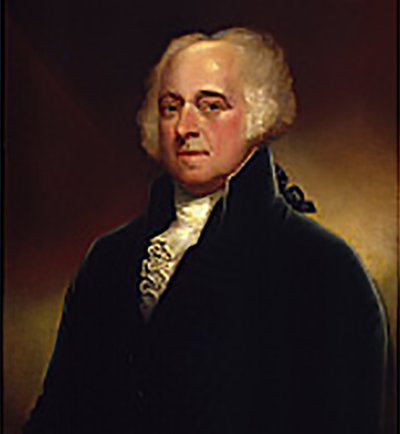In the Fall of 1787, after nearly four months of wrangling, brow-beating and arm twisting the Founding Fathers in Philadelphia emerged with a Constitution. Over the next several months it would be ratified by the newly-independent states. They also had a leader, the universally popular George Washington. Now it was time to see if it would all actually work. Could a democratic republic surrounded by enemies, deeply in debt—a new experiment in the world—thrive and survive, or would Benjamin Franklin’s dark hint—“A republic, if you can keep it”—prove all too apt.
Rick Heli’s Founding Fathers is a game inspired by The Republic of Rome, which transports many of the Avalon Hill classic’s mechanics to the early years of the United States. The players control groups of statesmen vying for offices in the executive branch and influence in Congress.
Several intrepid souls have volunteered to let me moderate their journey in to late eighteenth and early nineteenth century American politics.
I have randomly assigned player order as follows:
@Brooski
@Cuthbert
@Panzeh
@Ironsight
@Navaronegun
You can follow all of the exciting, spreadsheet based action on the Google Sheet that I’ll be using to keep track of the game. Founding Fathers Tracker Game 1 - Google Sheets
I’m still waiting for my physical copy to arrive, which I’ll need to complete the setup, but there is time for a quick overview of how the game is played.
Play proceeds in four phases: the Issue Phase, the Treasury Phase, the Election Phase, and the People Phase
Issue Phase
During this phase, the President draws 4 issues that are facing the United States from the issues deck. He appoints officers from the Statesmen of his party to various offices, such as Secretary of State, Secretary of the Treasury, and Special Envoy to help resolve the issues. Most issues also require Congressional approval, based on player controlled votes. The President may also propose or repeal taxes and tariffs, subject to a Congressional vote.
Treasury Phase
During this phase, the Secretary of the Treasury (or in this case, the moderator) adjusts the government’s reserves, adds interest, in the event that the government is in debt, and if the government is sufficiently in debt, rolls to see if the game ends due to economic collapse.
Election Phase
During this phase, the most popular Statesman from each party runs for President. After choosing a running mate, the two parties face off, placing markers in various states to determine control of the states’ electoral votes. At the beginning of the game, the statesman who gets the most votes becomes President, regardless of whether they were a Presidential candidate or a Vice Presidential candidate, and the second place Statesman becomes Vice President. Once the Twelfth Amendment comes into effect, things change.
If one party is exceptionally popular, there can be a single party dominance election, which works a little differently. We’ll cross that bridge when we get to it.
People Phase
In this phase, the players receive influence and draft action cards. The players then each take a turn doing one of the following: invest in newspapers to increase public support for their party, whip up public support for their party by making speeches, or make speeches to enhance their personal popularity. Once everyone has taken a turn, a final turn is up for grabs based on an auction where the players bid influence (from their statesmen and faction supply).
Game End: The game ends when the last issue card is drawn, when an economic collapse occurs, or when rising tensions push the country into civil war.
Victory: Players score victory points based on the popularity of their Statesmen when they die, retire, or when the game ends, whichever happens first. If the game ends by economic collapse or civil war, the players must subtract their influence and number of Congressional votes controlled from their final score.
For those who want to follow along with the rules at home, they are available here, somewhat down the page in the “downloads” section: https://www.thegamecrafter.com/games/founding-fathers

